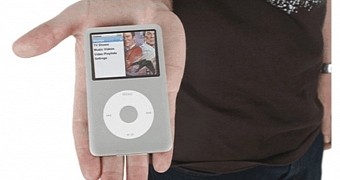Apple has been defending itself like crazy over the past two weeks, fending off accusations from iPod-owning plaintiffs that the Cupertino company engaged in anticompetitive practices in the 2000s preventing music from other parties from running on its players.
Judge Gonzalez Rogers, who is presiding over the case, wants the jury to determine whether or not Apple was right to push out software updates meant to thwart competitors' attempts to capitalize on the popularity of the iPod.
A lot like jailbreaking
The plaintiffs this week sang the same tune that Apple essentially downgraded the user’s experience with updates that countered the moves of competitors in the music industry, including Real Networks.
Apple, however, maintained that its updates were meant to allow the iPod to work as intended, noting that it would otherwise have worked like a car with two steering wheels, according to Cnet.
Apple’s defense attorney Bill Isaacson said, “This is all made up. It's lawyer argument. No evidence this ever happened ... there's no consumers, no iPod users, no surveys, no Apple business documents.” He added that the accusing side attempted to “hold a great company liable and tell them to stop innovating -- to stop innovating based on nonsense.”
Karen Dunn, another Apple attorney, went as far as to say that plaintiffs simply didn’t understand how the technology worked in this case. Whether or not the jury buys that, the scenario is indeed similar to those involving jailbreaks, where Apple thwarts hackers’ moves with new firmware builds meant to break their circumventions.
Jury duty
After hearing both sides, Judge Gonzalez Rogers asked the jury to let all these discussions sink in and ultimately present their conclusions.
“You will be asked to determine whether the firmware and software updates in iTunes 7.0 were genuine product improvements,” Judge Rogers said. “A company has no general legal duty to assist its competitors, including by making products interoperable, licensing to competitors or sharing information to competitors.”
Judge Rogers seemingly sided with Apple, as she invoked the Sherman Antitrust Act, which states that a claimed product improvement will not be regarded as anticompetitive just because it disrupts a competitor's moves, but only if the improvement in question is found to be genuine.
If Apple’s arguments fail to convince, the company will be ordered to pay hundreds of millions in fines to the accusing parties. Under existing legislature, the fine can balloon to reach close to a billion dollars (around €800,000).

 14 DAY TRIAL //
14 DAY TRIAL // 


